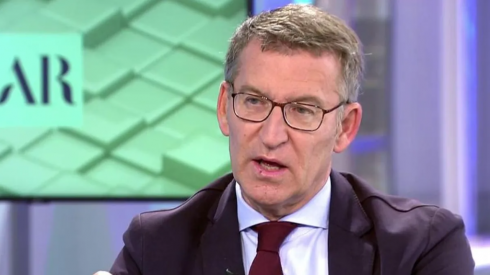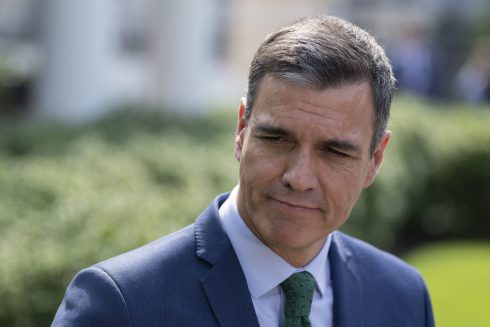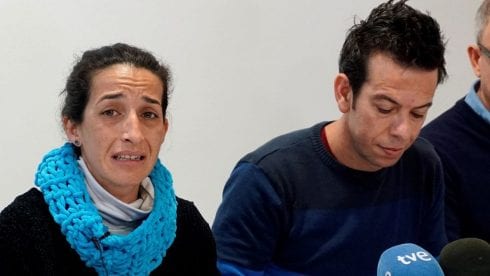ON JULY 23, Spaniards will be heading to polling booths across the country for the fifth time in the last 10 years, to choose the next prime minister and the next government. But according to the polling, it is far from clear who will be picked by voters and indeed whether any party or parties will get enough votes to avoid a stalemate. Here is a complete guide to everything you need to know ahead of this key moment in Spanish politics.
Why are we having elections now?
After forming Spain’s first coalition government since the country returned to democracy in the 1970s, Socialist Party Prime Minister Pedro Sanchez has repeatedly stated that he would see out the entirety of his four-year term. His administration was created in early 2020 thanks to the support of junior partner Unidas Podemos, and the PM could have called elections as late as December of this year. But after the May 28 local and regional elections saw both the Socialists and Unidas Podemos suffer at the polls, Sanchez surprised everyone by calling a snap general election for July 23.
Who are the main parties and candidates standing?
Pedro Sanchez is running for reelection as prime minister, despite his reputation having taken a hit over the last four years thanks to the deals he has done with smaller, nationalist parties such as the Catalan Republican Left and EH Bildu, which is the former political wing of Basque terrorist group ETA. His main opponent is Alberto Nuñez Feijoo of the conservative Popular Party, followed by Santiago Abascal of the far-right Vox. A newcomer at this election is Sumar, a leftist alliance that has absorbed the two component parts of Unidas Podemos, the United Left and Podemos itself, as well as other smaller leftist parties from Spain’s splintered political spectrum. The candidate for Sumar is current deputy prime minister and labour minister, Yolanda Diaz.

How do general elections work in Spain?
Spaniards will be voting for the 350 deputies who will take their seats in the lower house of parliament, the Congress of Deputies. Spain uses the D’Hondt method, which allocates Congress seats in proportion to the number of votes received, as well as a closed-list system of candidates, meaning that voters choose the party rather than the politicians who are running. As for the Senate, the 208 seats are allocated using an open-list system, where electors vote for candidates rather than parties.
What do the polls say?
While the predictions vary as to what will happen on July 23, one thing seems certain: no single party will win an outright majority of 176 seats in the 350-seat Congress, meaning a coalition is inevitable. The latest poll from Spanish daily El Pais predicts that the PP and Vox will fall eight seats short of an absolute majority, with 125 seats for the former and 43 for the latter, a total of 168. The survey, carried out by pollster 40dB, also predicts 111 seats for the PSOE and 35 for Sumar, for a total of 146 seats. Meanwhile, conservative newspaper ABC has predicted that the PP and Vox could take between 175 and 183 seats, potentially paving the way for the formation of a government.

Who could do deals with whom?
Polling data has prompted analysts to predict that a PP-Vox government is the most likely outcome of the July 23 polls. But if the groups fall short of a majority, they could struggle to find support. This is mostly due to Vox’s hardline policies on issues such as LGBTQ+ rights, domestic violence and illegal immigration. The Basque Nationalist Party, for example, has already made clear it won’t support a PP-Vox administration.
Another ‘Frankenstein’ government?
This paves the way for a repeat of the 2019 election result, whereby the PSOE teams up with new leftist alliance Sumar, and seeks support from smaller parties. The current administration has been governing in a minority this way over the last few years, but it has cost Pedro Sanchez dear: his concessions to Catalan separatists, including pardons for the jailed leaders of the 2017 independence drive, have come with huge political fallout, while agreements with EH Bildu in order to pass legislation have raised the ire of conservative voters and victims’ associations alike.

A repeat election?
Another possible outcome from July 23 is that Spaniards will be forced to return to the polls: if the result is inconclusive, and no party can find the support in Congress to select a prime minister and form a government, the elections may have to be rerun. This, however, could mean that the country is left with a caretaker administration until well into 2024.
Read more:
- Popular Party in Extremadura does complete U-turn and will enter into government with far-right Vox
- Spain’s Popular Party distances itself from Vox ad throwing feminism and the LGBTQ+ flag in the bin
- As general elections approach, conservative Popular Party struggles with uneasy bedfellow Vox











